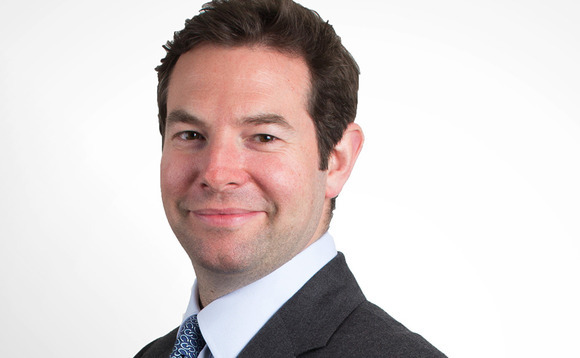
In Profile: Duke Street restructures Fund VI

Duke Street has restructured its sixth fund, with half of LPs cashing out via the process. As part of the unquote" In Profile series, Denise Ko Genovese takes a look at the GP's new hybrid strategy
Mid-market private equity house Duke Street has restructured its 2006 fund, Duke Street VI, in a deal that sees Goldman Sachs and Arcano taking the position of almost half the original LPs. A total of 50% of investors decided to cash out, with the remainder rolling over into a newly created special purpose vehicle (SPV) where the six remaining assets from Fund VI, including Wagamama and The Original Factory Shop, were transferred.
"We started to think about options for Duke Street VI last year as it was approaching the 10-year point since first close," says investor relations partner James Almond. "We wanted to offer our LPs choice, knowing some would appreciate liquidity given the age of their own underlying funds or the fact private equity was no longer a core strategy of theirs. So we decided to restructure the fund and we received overwhelming support with 89% approval from the 50-strong LP group."
Lazard was hired to run a process before the summer of 2016 and by September there were a handful of potential buyers willing to provide cash. Goldman Sachs offered the highest price as well as tabling new money to fund future deals as a cornerstone investor – up to 50% of the GP's equity ticket, says Almond.
Spanish investment group Arcano also took part in the process and agreed to work alongside the lead bidder at the syndication phase.
"For those rolling over, we wanted to keep the terms the same, so no different to [what they would have been] if we had extended the life of the fund," says Almond. "And for those cashing out, we wanted to maximise the price – it was at a price that was a premium to the NAV of the fund."
Duke Street says it is adopting a hybrid model for the next phase of its investment journey, moving away from its deal-by-deal approach, since they now also have cornerstone funds at their disposal. For a new deal, the GP contribution will be 3-5%, the cornerstone fund contributing 50%, with additional co-investment.
French investment bank Tikehau acquired a 30% chunk of the Duke Street business in 2013, so the underwriting capability is still on the table in the unlikely event it is required, says Almond.
Challenge or opportunity
A few years ago, the GP moved away from fund-based investing to a deal-by-deal approach. "It wasn't all smooth sailing, especially since the model wasn't as common here in Europe as it is in the US, but we have proved ourselves now with five deals under our belt, which have a combined EV of £700m," says Almond.
"The market has been evolving and some LPs who said they couldn't invest with a fundless sponsor only 18 months ago are willing and wanting to co-invest now. We have a club of circa 20 LPs who co-invest in our deals, several of them have been repeat investors. Our most recent deals have been heavily oversubscribed. Now GS and Arcano have given us further support with the new cornerstone fund, we have plenty of fire power."
Indeed, the co-investment market in general is more established now, and most GPs admit there is increasing appetite for it. Not only is there money to deploy since returns have been so good, LPs are getting savvier about reducing fees.
When asked whether Duke Street will ever fundraise again, Almond concedes it would never say never. However, it is keen to give the hybrid model a chance to succeed, especially given the apparent advantages of flexibility and deal-by-deal carried interest.
"The 10-year fund model isn't going anywhere – but I think we'll start seeing some different and more flexible models on the periphery," says Almond.
Duke Street typically calls on three to five co-investors for each deal and the LPs range from family offices such as Souter Investments to blue chip institutions like Deutsche Bank, Alberta Teachers and Allstate Insurance.
Same but different
The GP's focus on four sectors – services, healthcare, consumer and industrials – remains unchanged. It continues to look at companies with an EV of £50-250m, though this can on occasion be higher: Voyage Care was a chunky £375m. Duke Street will typically contribute a £60-70m equity ticket.
"We don't often go into auctions as the companies we like to invest in can sometimes need quite a bit of operational or strategic change and may not appeal to everyone or suit a process," Almond says, citing the acquisitions of Ardent and Mediglobe where there were messy shareholder structures to buy out. With this in mind, the hope is for an investment rate of up to three deals a year.
And in terms of tapping the debt markets for financing, Duke Street is fairly open to the range of options. It used mezzanine for Laurel Funerals; ABL for Ardent; bonds for Voyage and Wagamama; and a group of local German banks for Mediglobal.
Deal-by-deal track record
Since adopting the deal-by-deal approach four years ago, Duke Street has acquired five companies and exited two.
Laurel Funerals was acquired in 2012 and sold to Dignity and August Equity-backed FSP in 2015; Baywater Healthcare was acquired in 2013 as a carve-out from a larger corporate, with the group's Irish division then sold to Air Liquide in 2015. The GP also acquired Voyage Care in 2014, created Ardent out of the acquisitions of Fork Rent and One Call in 2015, and most recently bought German medical equipment maker MediGlobe in 2016.
Longer-term returns are understood to be more than 2x with an IRR approaching 30% since the 2008 crisis, with a further pick-up in performance since adopting the deal-by-deal approach with returns of over 3x.
Key People
• Peter Taylor, managing partner, joined Duke Street in 1996 after qualifying as a chartered accountant and working at Bridgepoint. He is a specialist in the consumer sector.
• Charlie Troup, managing partner, joined Duke Street in 2006 after working at Permira and HSBC Private Equity (now Montagu) on secondment from Deloitte and Touche.
• Stuart McMinnies, managing partner, joined Duke Street in 2015 after a 19-year stint at 3i. His main sector expertise is in business services.
• James Almond, partner, joined Duke Street in 2015 from Octopus Investments and is responsible for fundraising, running the co-investment programme and investor relations.
Latest News
Stonehage Fleming raises USD 130m for largest fund to date, eyes 2024 programme
Sponsor acquired the public software group in July 2017 via the same-year vintage Partners Group Global Value 2017
Stonehage Fleming raises USD 130m for largest fund to date, eyes 2024 programme
Czech Republic-headquartered family office is targeting DACH and CEE region deals
Stonehage Fleming raises USD 130m for largest fund to date, eyes 2024 programme
Ex-Rocket Internet leader Bettina Curtze joins Swiss VC firm as partner and CFO
Stonehage Fleming raises USD 130m for largest fund to date, eyes 2024 programme
Estonia-registered VC could bolster LP base with fresh capital from funds-of-funds or pension funds









